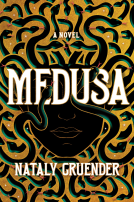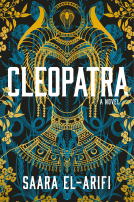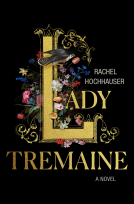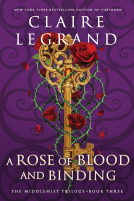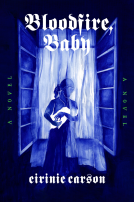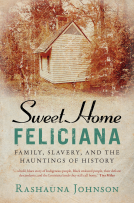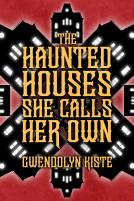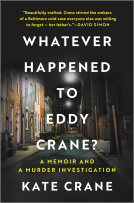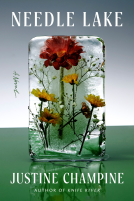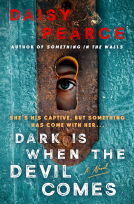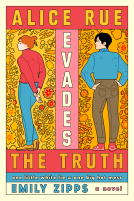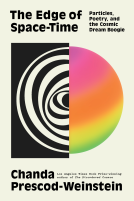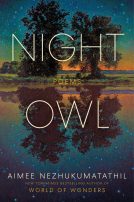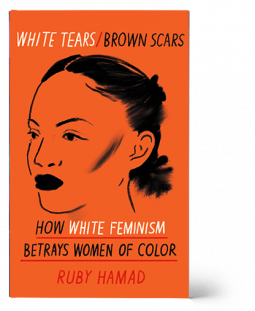
White Tears/Brown Scars
How White Feminism Betrays Women of Color
by Ruby Hamad
This title was previously available on NetGalley and is now archived.
Send NetGalley books directly to your Kindle or Kindle app
1
To read on a Kindle or Kindle app, please add kindle@netgalley.com as an approved email address to receive files in your Amazon account. Click here for step-by-step instructions.
2
Also find your Kindle email address within your Amazon account, and enter it here.
Pub Date Oct 06 2020 | Archive Date Oct 13 2020
Talking about this book? Use #WhiteTearsBrownScars #NetGalley. More hashtag tips!
Description
For readers ofWhite Fragility, an explosive book of history and cultural criticism (“Ruby Hamad blows open inconvenient truths . . . in this powerful book”—Marie Claire Australia) which argues that white feminism, from Australia to Zimbabwe to the United States, has been a weapon of white supremacy and patriarchy deployed against Black and Indigenous women, and women of color.
Taking us from the slave era, when white women fought in court to keep “ownership” of their slaves, through the centuries of colonialism, when they offered a soft face for brutal tactics, to the modern workplace,White Tears/Brown Scars tells a charged story of white women’s active participation in campaigns of oppression. It offers a long overdue validation of the experiences of women of color.
Discussing subjects as varied asThe Hunger Games, Alexandria Ocasio-Cortez, the viral BBQ Becky video, and 19th century lynchings of Mexicans in the American Southwest, Ruby Hamad undertakes a new investigation of gender and race. She shows how the division between innocent white women and racialized, sexualized women of color was created, and why this division is crucial to confront.
Along the way, there are revelatory responses to questions like: Why are white men not troubled by sexual assault on women? (See Christine Blasey Ford.) With rigor and precision, Hamad builds a powerful argument about the legacy of white superiority that we are socialized within, a reality that we must apprehend in order to fight.
Advance Praise
"White Tears/Brown Scars is an essential guide for those who want to be truly intersectional in their feminism. Ruby Hamad skillfully distills history, academic research, and lived experiences of women of color to create an engaging inquiry into white supremacy and the role of white women within it." —Zeba Talkhani, author of My Past Is a Foreign Country
"White Tears/Brown Scars belongs in twenty-first-century feminist canon. It's grounded in deep historical context, yet thoroughly of the present. It makes bold intellectual arguments, but is extremely readable and grounded in human experience. If you are a white woman, it may make for uncomfortable reading: this book takes the most precise scalpel to the way that white women leverage race and gender of any book that I've read. If you are a woman of color, perhaps it will make you feel seen. If you are a man, read it for your own education! Hamad has written a truly exceptional, agenda-setting work." —Rachel Hills, author of The Sex Myth
Available Editions
| EDITION | Other Format |
| ISBN | 9781948226745 |
| PRICE | $16.95 (USD) |
| PAGES | 304 |
Links
Average rating from 42 members
Featured Reviews
Thank you to Catapult Press for the review copy!
Ruby Hamad had a moment of panic when an article she wrote for The Guardian went viral. The article was about white women's tears and how they are often used as a weapon in white feminism against people of color. She shut down her Twitter account briefly out of fear of being attacked. She brought her account back online in order to stand behind her work.
In this, her first book, Hamad expands on the ideas from her essay and talks about white feminism and how it impacts women of color. Hamad herself is Arab so has some personal experience being on the "outside" of some aspects of white feminism. The book is well-researched with lots of cases across different ethnicities. the book is eye-opening and important for women to read, particularly white women, so they can understand how some actions that they may perceive as being helpful to women are not in fact helpful to all women.
White Tears/Brown Scars is a book that white women need to read. It's not the job of BIPOC women to teach white women about the harm they cause, but we are lucky that authors like Ruby Hamad create books like this one so learning can happen.
It is a book that grapples with how the patriarchy weaponizes white women, and how white women have perpetuated campaigns of oppression.
Many thanks to NetGalley, the author, and the publisher for providing me with a copy of this book. All thoughts are my own.
 Katie N, Librarian
Katie N, Librarian
“Whiteness can and does exist even in the absence of white people.”
I really hope this quote stayed in the final copy because this hit hard. I’ve been expanding my reading material to more sociological topics, including BIPOC feminism like this title. The author does not keep to an American focus, but instead expands a look at the consequences of white feminism on a global scale. The author, who I believe wrote from Australia, makes significant observances on how white women, through the “gift of civilization,” participated in irreparably damaging the lives of Aboriginal Australians and their children.
The author doesn’t so much as blame these women, but accuses the indication that white women are the damsels that are the kind face in opposition to the sternness of their male counterparts. This is a must read for anyone looking to understand current (see: ongoing but now accepted to notice) issues, both in the United States and across the globe.
 Allison E, Librarian
Allison E, Librarian
An urgent and necessary read for everyone. Delving into the history of various feminist movements and how they often center around white women to the exclusion of women of color, Hamad writes a provocative book that seeks to examine where we've been and where we can go. Mixing in personal experiences, anecdotes from her own life as well as acquaintances that have shared, alongside research and historical information This is an informative and important exploration into how we can reform feminism for now and in the future.
 Lori S, Reviewer
Lori S, Reviewer
It takes me a little longer to read non-fiction books as I tend to read only about a chapter at a time to digest what I've read. This was an outstanding read in my opinion. While written more towards women of color, it's a book that white women should read. There were some lines that really spoke to me, the following as a sample “White women can oscillate between their gender and their race, between being the oppressed and the oppressor. Women of color are never permitted to exist outside of these constraints: we are both women and people of color and we are always seen and treated as such.” WOW
 Librarian 355215
Librarian 355215
This book was very good. I annotated a majority of the book. Hamad touches many cultures of women and how history and time have viewed them compared to the white woman. I appreciate the inclusion of the bibliography and notes at the end in order for allies to continue to pursue self-education and further research.
